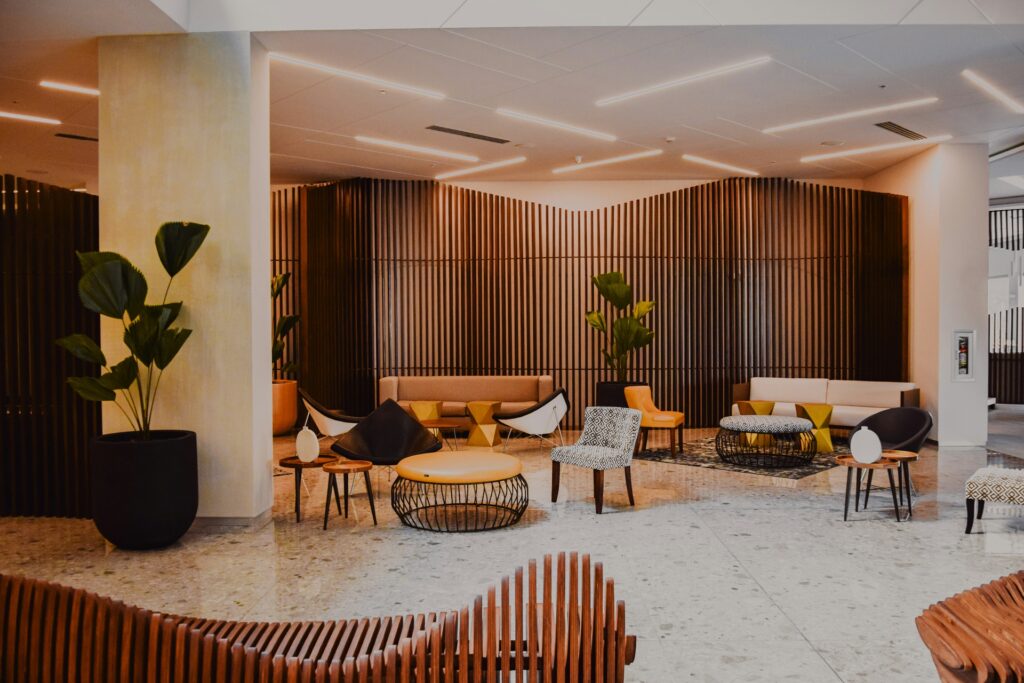
Optimizing Energy Efficiency in Your Hotel Chain: The Role of Multi-Property HVAC Services
As the hospitality industry expands, saving energy is crucial for staying profitable and eco-friendly. Hotel chains face a tough task in managing energy across their varied properties. One smart approach? Using multi-property HVAC (Heating, Ventilation, and Air Conditioning) services. Let’s delve into why energy efficiency matters in hospitality, how these multi-property HVAC services help, and the big savings they can bring.
The Importance of Energy Efficiency in the Hospitality Industry
Energy efficiency is crucial for hotel chains for several reasons:
- Cost Savings: Energy is one of the largest operating expenses for hotels. Reducing energy consumption directly translates to lower utility bills and increased profitability.
- Environmental Impact: Hotels have a significant carbon footprint. Implementing energy-efficient practices helps reduce greenhouse gas emissions and supports corporate sustainability goals.
- Guest Experience: Modern travelers are increasingly environmentally conscious and prefer staying in eco-friendly hotels. Energy efficiency can enhance guest satisfaction and loyalty.
- Regulatory Compliance: Many regions have stringent energy regulations. Adopting energy-efficient practices ensures compliance and avoids potential fines.
The Role of HVAC Systems in Energy Efficiency
HVAC systems are among the largest consumers of energy in hotels, accounting for a substantial portion of the total energy usage. Efficient HVAC systems are essential for maintaining comfortable indoor environments while minimizing energy consumption. Multi-property HVAC services offer several advantages for hotel chains looking to optimize energy efficiency.
Benefits of Multi-Property HVAC Services
1. Centralized Management
Multi-property HVAC services allow hotel chains to manage and monitor HVAC systems across multiple locations from a central platform. This centralized approach offers several benefits:
- Consistent Performance: Ensures that all properties maintain consistent HVAC performance standards.
- Real-Time Monitoring: Enables real-time monitoring of energy usage and system performance, allowing for immediate detection and resolution of issues.
- Data-Driven Decisions: Provides valuable data on energy consumption patterns, which can be used to make informed decisions about energy-saving measures.
2. Energy Optimization
Centralized HVAC systems can be optimized to achieve maximum energy efficiency. This can be done through:
- Automated Controls: Implementing automated controls and scheduling to ensure HVAC systems operate only when needed.
- Temperature Setpoints: Standardizing temperature setpoints across properties to avoid unnecessary energy consumption.
- Predictive Maintenance: Utilizing predictive maintenance techniques to prevent system failures and ensure optimal performance.
3. Scalability
Multi-property HVAC services are scalable, making them suitable for hotel chains of all sizes. Whether a chain has a few properties or several hundred, the system can be scaled to meet the specific needs of the business.
4. Cost Savings
By optimizing energy usage and reducing waste, multi-property HVAC services can lead to significant cost savings. Centralized management also reduces the need for on-site maintenance staff at each property, further lowering operational costs.
5. Enhanced Guest Comfort
Efficient HVAC systems ensure that guests enjoy a comfortable stay, regardless of the weather outside. Centralized control allows for quick adjustments to maintain optimal indoor conditions, enhancing the overall guest experience.
Implementing Multi-Property HVAC Services
Implementing multi-property HVAC services in a hotel chain involves several steps:
1. Assessment and Planning
- Energy Audit: Conduct an energy audit to assess current energy usage and identify areas for improvement.
- System Evaluation: Evaluate existing HVAC systems to determine their efficiency and potential for integration into a centralized platform.
- Goal Setting: Set clear energy efficiency goals and objectives for the hotel chain.
2. Choosing the Right Technology
- HVAC Solutions: Select HVAC solutions that are compatible with multi-property management and offer energy-saving features.
- Automation Systems: Invest in automation systems that provide centralized control and monitoring capabilities.
- Data Analytics: Implement data analytics tools to track energy usage and identify trends and opportunities for optimization.
3. Installation and Integration
- System Installation: Install new HVAC systems or upgrade existing ones to meet energy efficiency standards.
- Integration: Integrate HVAC systems across all properties into a centralized management platform.
- Training: Train staff on the use of the new systems and the importance of energy efficiency practices.
4. Monitoring and Optimization
- Continuous Monitoring: Monitor HVAC performance and energy usage continuously to ensure systems are operating efficiently.
- Regular Maintenance: Perform regular maintenance to keep systems in optimal condition and prevent energy waste.
- Adjustments: Make adjustments to HVAC settings based on data analysis to further optimize energy usage.
Optimizing energy efficiency is essential for hotel chains looking to reduce operational costs, enhance guest satisfaction, and meet sustainability objectives. Multi-property HVAC services offer a powerful solution by providing centralized control, real-time monitoring, and data-driven optimization of HVAC systems. By implementing these services, hotel chains can achieve significant energy savings and improve overall performance.
If you’re ready to take your hotel chain’s energy efficiency to the next level, Total Comfort Group offers comprehensive multi-property HVAC services designed to meet your unique needs. Give us a call at 877-558-5590 to learn more about our solutions and start your journey towards a more energy-efficient future today.



